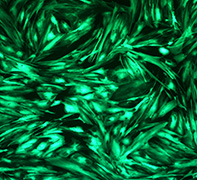The immune system is characterized by remarkable specificity, potency, and memory; these are exemplified by the ability of a single dose of vaccine to provide lifelong protection against disease. No pharmacologic treatment for any indication provides the same level of safety, efficacy, and long-lasting effect conveyed by a vaccine. Researchers and clinicians have long sought to apply these characteristics to the treatment of cancer, and advances in cellular immunology over the past three decades have provided enormous insights into the nature and consequences of interactions between tumors and immune cells that have signaled the beginning of a new era. This knowledge continues to lead to strategies whereby the immune system might be harnessed for treating established malignancies.
A number of immunologic interventions, both passive and active, can be directed against tumor cells. In passive immunotherapy, specific effector cells are directly infused and are not induced or expanded within the patient. Active cellular immunity can be induced targeting specific well-defined antigens, and several techniques can be used to stimulate a host response. Early attempts to apply these techniques to cancer immunotherapy were not very successful due to the innate immune checkpoint system designed to prevent immune attack on autologous cells. In recent years, researchers have begun to overcome this challenge.
Over the past 30 years, conceptual and technical advances in the field of immuno-oncology have provided the knowledge and techniques to develop novel immunotherapeutic approaches that are demonstrating real clinical impact. Notably, the most heralded new class of immuno-oncology drugs are the ‘immune checkpoint inhibitors’, which work by blocking the molecules that switch off immune cells, thus increasing tumor immunogenicity.
Among the immunotherapeutic methods being used in the clinic or explored for therapeutic potential are many that enhance tumor immunogenicity by blocking inhibitory pathways and inhibitory cells in the tumor microenvironment, such as antibodies against cytotoxic T-lymphocyte-associated antigen-4 (CTLA-4), programmed death 1 (PD-1) or its ligand programmed death ligand 1 (PDL-1). Similarly, methods that can enhance the specificity of anti-tumor immunity by inducing the expansion of T-cells and antibodies directed to well-defined tumor antigens are being investigated, such as cancer vaccines, potent adjuvants, and immuno-stimulatory cytokines. Even as monotherapies, these approaches have a substantial impact on the treatment of some patients with advanced, previously untreatable, malignancies. These successes provide a rationale to expect that future immunotherapies can transform cancer treatment, improving the prognosis for many patients.
With the increasing success and subsequent interest in cancer immunotherapy, there is a growing need for well-characterized preclinical models. Charles River Laboratories has evaluated the responsiveness of several syngeneic murine tumor models to antibody-based, immune checkpoint inhibitor therapeutics targeting CTLA-4 and PD-1. The results clearly show a differential response across tumors when these inhibitors were used individually or in combination. This differential allows one to match efficacy with model and expands the portfolio of models available for evaluating combination therapies. Furthermore, an evaluation of the efficacy of checkpoint inhibitors in the human RKO colon carcinoma xenograft model in CD34-NSG humanized mice was completed. Results from these studies shows significant tumor growth inhibition in response to checkpoint inhibitor monotherapies associated with activation of cytotoxic lymphocytes and cytokine expression. In this webinar, these findings detailing the benefits of a multidisciplinary approach to cancer immunotherapy efficacy study design and execution on behalf of our partners will be outlined.
As novel cancer immunotherapy treatments continue to be at the forefront of discovery and development, checkpoint inhibitor treatment remains center stage. Moreover, other targeted and personalized treatment modalities will likely emerge. Central to this effort will be a reliance on appropriate preclinical models, which form the backbone of many immuno-oncology drug discovery programs, particularly with the increasing focus on combination therapy. In-depth efficacy studies are a valuable source of in vivo information and will play a prominent role in elucidating potential compounds, either alone or in combination, that demonstrate potential as immunotherapeutic anti-cancer agents.
Speaker

Joseph Murphy, Ph.D., Director of R&D, Oncology, Charles River Laboratories
Joseph Murphy, Ph.D. is the Director of R&D, Oncology for Charles River Laboratories. Dr. Murphy has more than 20 years’ experience in biological research in both academia and the biotechnology industry. Prior to joining Charles River, he was the Director of Cancer Therapeutics and Immunology at the Southern Research Institute in Birmingham, Alabama. Before joining SRI, Dr. Murphy was a Senior Research Scientist and Lecturer at Trinity College, University of Dublin, Ireland and served as Founder/Managing Director of Emmerex Limited, a company focused on developing an immune-based anti-cancer therapy.
Dr. Murphy holds a Bachelor’s of Science degree in Mathematics, Experimental Physics, and Biology from the National University of Ireland and earned his Doctorate of Philosophy in Immunology from the Department of Biological Sciences, University of Salford, United Kingdom. Murphy conducted post-doctoral work at INSERM U331/Institute Pasteur, Lyon, France and Stanford University, CA, and has written and/or contributed to more than 100 scientific articles and abstracts. Dr. Murphy sits on the industry committee for the Society for Immunotherapy for Cancer (SITC) and has served as a reviewer for Clinical Medicine Insights: Oncology, Clinical Medicine Insights: Cardiology, International Journal of Cancer, Journal of Medical Genetics and Genomics, and MOJ Immunology.
Who Should Attend?
VPs/Directors/Managers/Senior Scientists & Research Scientists working within:
- Discovery
- Pharmacology
- Translational Science
- Oncology
- Cancer Immunotherapy
- Cancer Immunology
- Cancer Biology
- Cancer Immunobiology
From Pharmaceutical and Biotechnology companies
Xtalks Partner
Charles River
As your scientific partner and preclinical CRO provider, Charles River provides innovation, flexibility, and efficiency in IND-enabling studies from early discovery research and in vivo pharmacology models through safety assessment. Our unique combination of interdisciplinary, multi-disciplinary drug discovery expertise and unparalleled scope of capabilities in targets, platforms, and therapeutic areas allow us to deliver depth and breadth in science with insight and data you can trust to progress your drug discovery programs at any point along the way, from your very first research question about a molecule to a drug candidates’ first trial in man.
You Must Login To Register for this Free Webinar
Already have an account? LOGIN HERE. If you don’t have an account you need to create a free account.
Create Account



